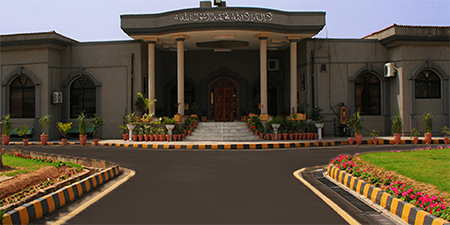JournalismPakistan.com
January 01, 2022
Cherie Conela

ISLAMABAD—The News has pointed out the need to review the existing contempt laws, highlighting that "there has been a long debate over the contempt laws in Pakistan, introduced in colonial times and never reformed."
Journalists have one primary duty—to inform the public, the paper noted in its editorial published on the eve of the new year, emphasizing that "For a journalist, the story – after due editorial diligence – is everything."
The editorial is titled 'The sword of contempt.' It states that the matter at hand is the Islamabad High Court decision to indict the editor-in-chief, editor, and editor investigations of The News for a November story regarding an affidavit issued by former GB CJ Rana Shamim, in which he implied certain wrongdoings by former CJ Saqib Nisar.
"As we have written earlier as well, it is an investigative reporter's job to find exclusive stories, get the documents to corroborate the story, get statements from those in the story and then file the story," the paper highlighted.
"In this case, Editor Investigations Mr Ansar Abbasi got an exclusive scoop. He verified it by reaching out to Judge Shamim while also contacting former CJ Saqib Nisar and publishing his denial. The name of the high court judge was not mentioned in the news report."
According to the editorial, there was no attempt to malign the judiciary in any way. "How this warrants such a penalty is a question we must ask as journalists and advocates of freedom of the media and the right to know," it stated.
"Contempt laws do not enjoy the best history when it comes to journalists' rights. At a time when journalism is already facing some of the worst restrictions it has had to see in the country, this indictment comes as a severe blow."
"In a country where the proverbial red line has become thicker and thicker over the years to an extent that news stories almost read like redacted classified files, what is a reporter to do when even verified news stories mean you end up facing contempt charges? And what precedent does this set? Will reporters be able to continue to freely use the minuscule space they have left? Or will they hold back on their job for fear of prosecution?" The paper further asked questions, concluding that honorable courts may understand these concerns so that the Pakistani journalist does not have to fear contempt each time they do a story that is in the public interest.
January 18, 2024
December 10, 2023
December 05, 2023
November 11, 2023
November 10, 2023
November 09, 2023